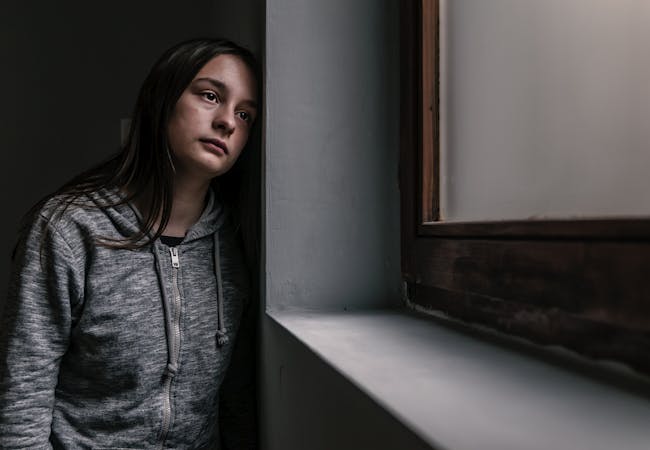Recognizing the Signs
It can be hard to know for sure if a child or teen is depressed or has anxiety. Depression and anxiety in youth are often missed or misdiagnosed because signs can be seen as normal emotional responses. Emotions also change as a child grows older. It’s important as a parent to recognize the signs of depression or anxiety and obtain help for your child when needed. How do you know if it’s anxiety or depression? Anxiety can bring intense feelings of worry, fear, uneasiness, and/or panic that can disrupt everyday activities. Symptoms could include irritability, nausea, rapid heartbeat, sweating or shaking, trouble sleeping, and feeling tense. While some symptoms of depression may be similar to anxiety like irritability and trouble sleeping, they are two different conditions that can occur together.
Signs of depression to watch for include:
- Persistent, day-after-day feelings of sadness and hopelessness
- Crankiness, anger, or irritability
- Increased sensitivity to rejection or feeling that they are not good at anything
- Vocal outbursts or crying
- Changes in eating or sleeping habits (either increased or decreased)
- Social withdrawal, loss of friends, lack of interest in family activities
- Loss of interest in school accompanied by missed school days and declining grades
- Fatigue, low energy, and trouble concentrating
- Feeling that everything is their fault
- Vague health complaints like a stomachache or headache
- Other symptoms like heart pounding, feeling dizzy, shaky, or sweaty
- Use of alcohol or drugs
- Thoughts of harming oneself or of suicide
Some of these signs are similar to those of a child being bullied, which can also lead to depression and anxiety. It’s important to note that not all children show signs of depression or anxiety and different signs show up at different times in their lives.
What You Can Do
While the American Academy of Child and Adolescent Psychiatry (AACAP) recommends healthcare providers routinely screen children and teens for mental health concerns, if you suspect your child is depressed or has anxiety and the symptoms persist for more than a couple weeks, ask for help. Talk with your child’s teacher, friends, or classmates to see if they’ve noticed any change in behavior.
Talk with your child. Share your concerns and reassure your child that they can always talk to you and how much you care about how they feel. Avoid telling them what to do to help foster discussion. If the issue is about their psoriasis or psoriatic arthritis, find out exactly what the issue may be. Reinforce that having psoriasis is not their fault. Nor is it contagious.
Schedule a visit with your child’s health care provider to discuss the symptoms of depression and/or anxiety. Ask for a referral to a mental health care professional or find a mental health care professional who specializes in children and can help diagnose depression or anxiety and offer treatment options.
Treatment
While depression and/or anxiety are serious they can be treated. Following a mental health screening to aid in diagnosis, treatment options could include:
Psychotherapy or counseling to address how your child is feeling and why. Types of therapy include cognitive-behavioral therapy (CBT), interpersonal therapy (IPT), family therapy, and group therapy.



.png?ixlib=gatsbyFP&auto=compress%2Cformat&fit=max&rect=0%2C38%2C650%2C373&w=778&h=447)